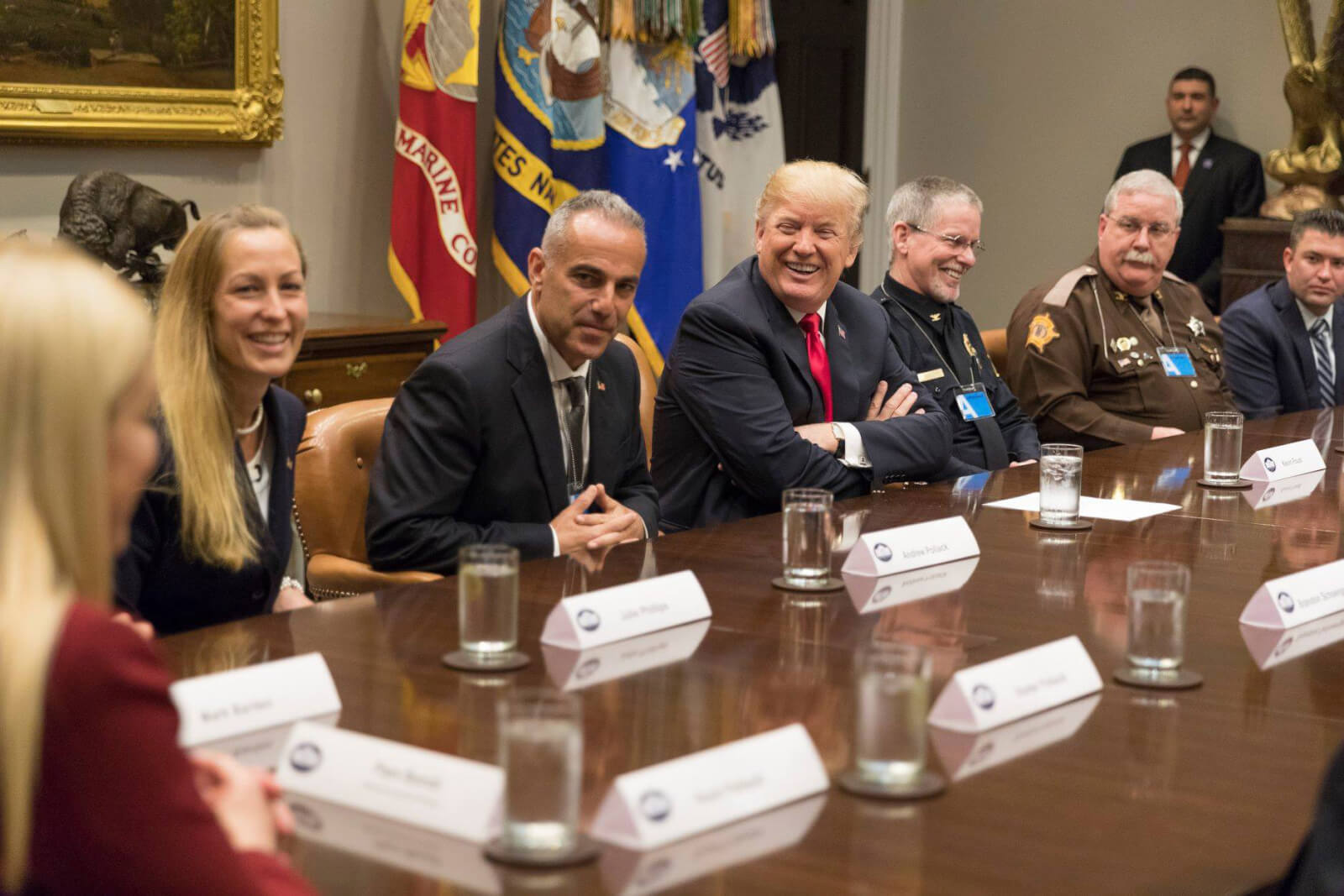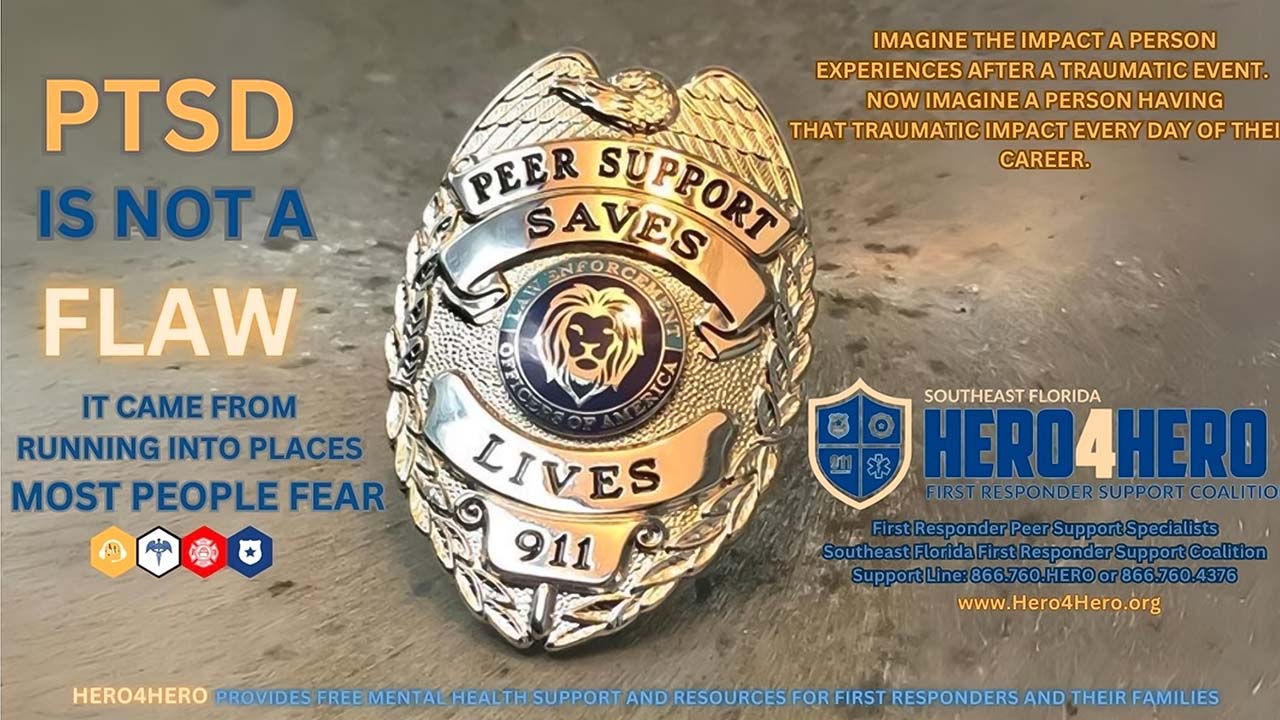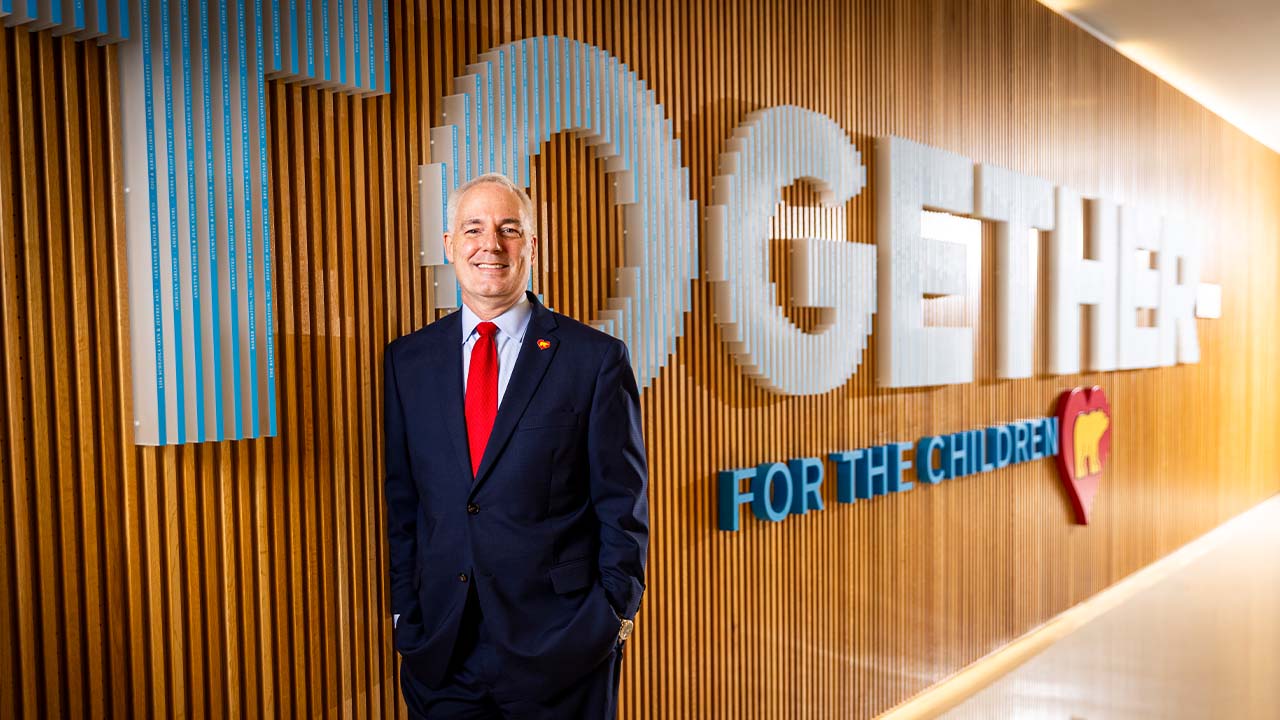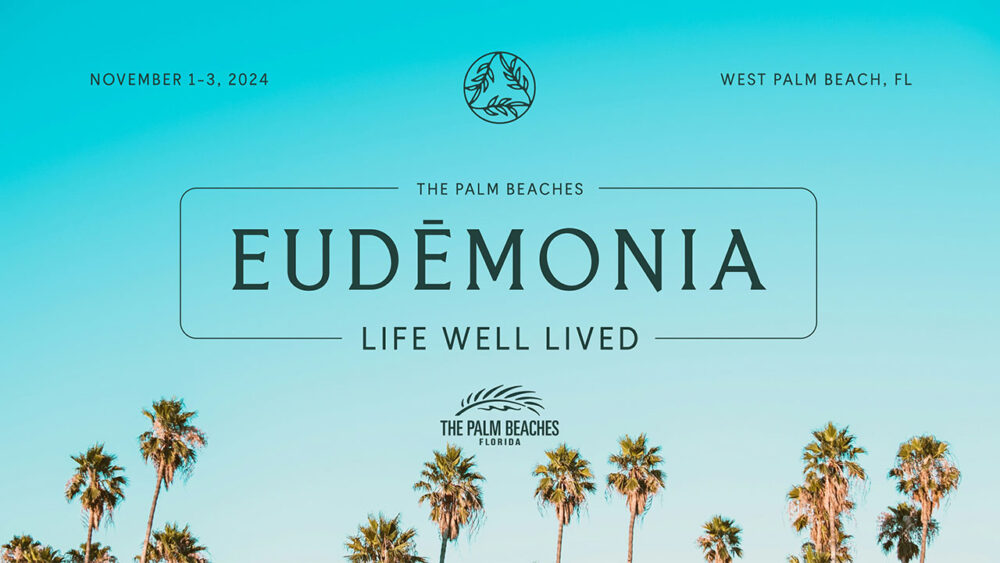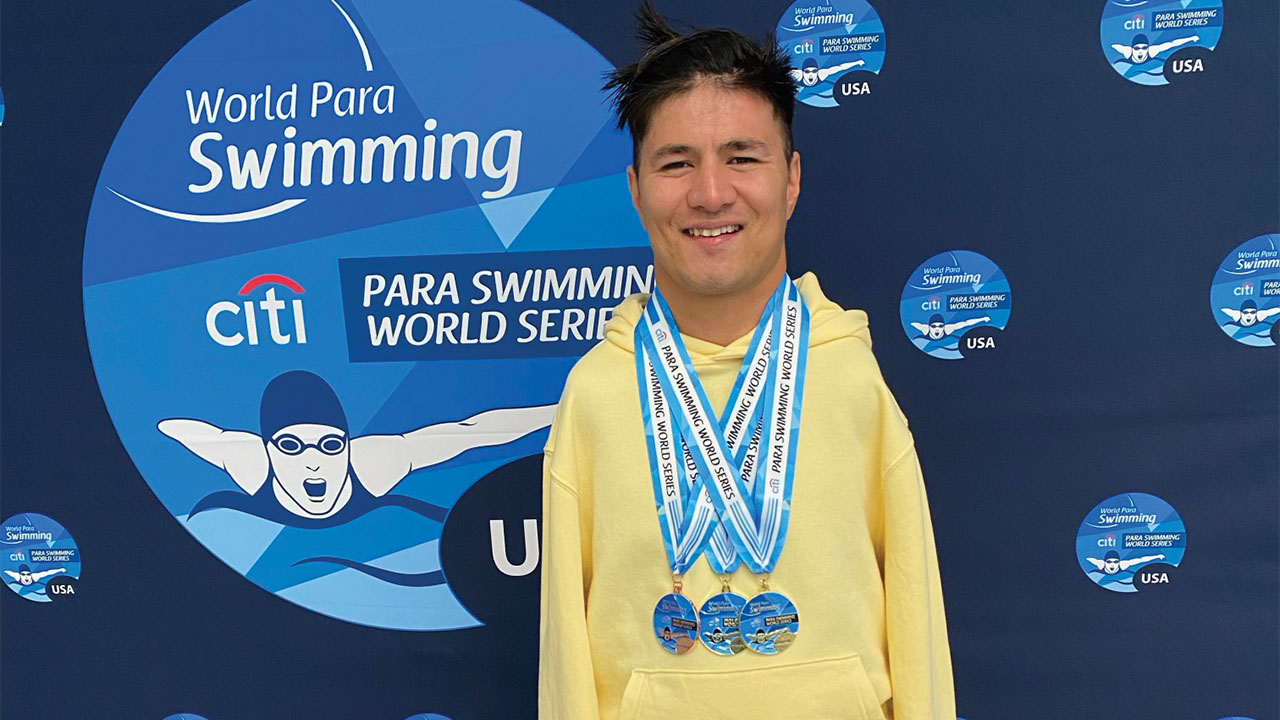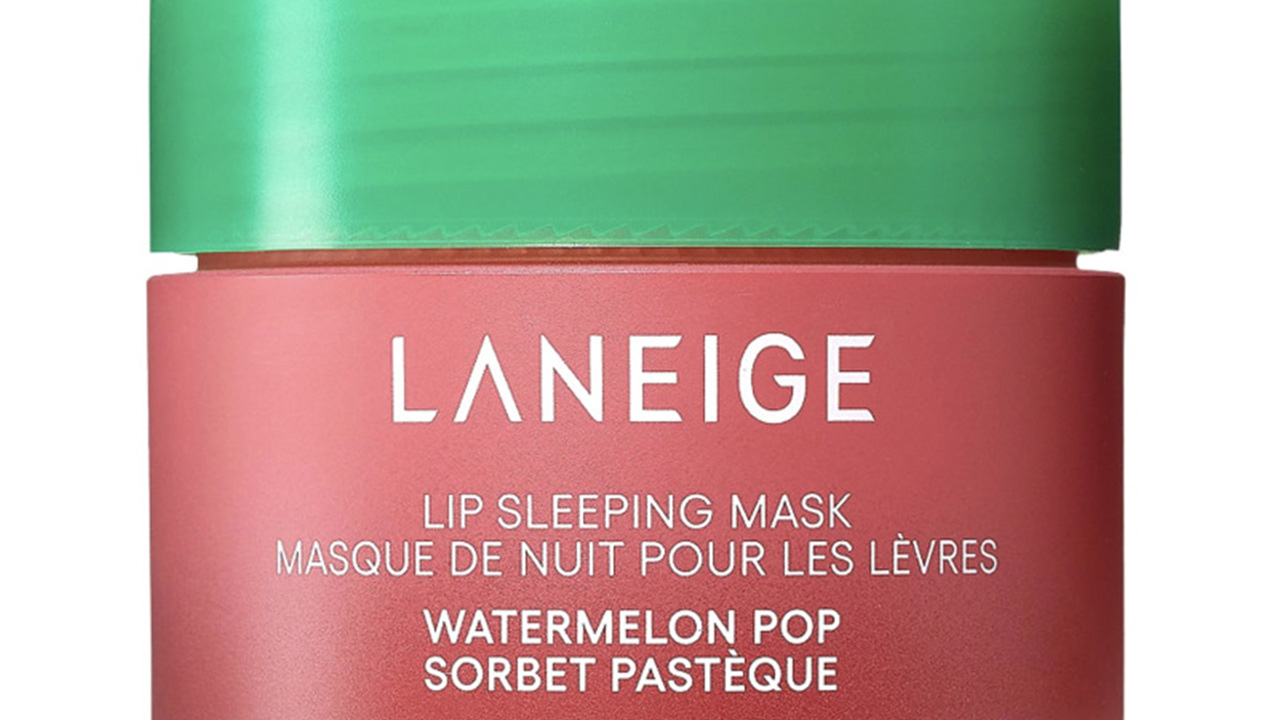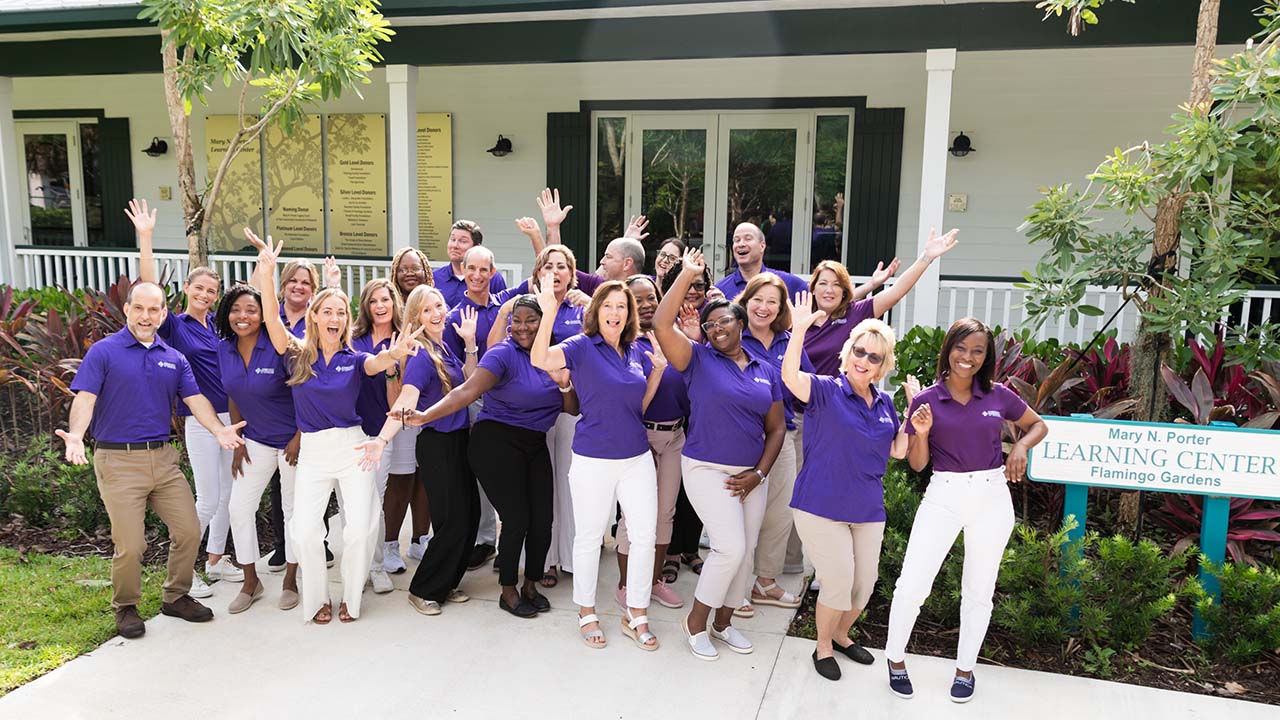In the nearly six months since 17 people were killed in the shooting at Marjory Stoneman Douglas High School, consensus has been hard to find. Gun-reform issues have sent people to their respective corners. The work of student advocates has been equally polarizing. And lawmakers at the national level have been unable to advance game-changing legislation that addresses the tentacles to arise out of Parkland and similar school shootings.
But for Fred Guttenberg, Andrew Pollack, Ryan Petty and Lori Alhadeff, there is plenty on which to agree. All four MSD parents, having buried a child following the events of Feb. 14, 2018, are living lives they never expected. Each one has turned anger into activism, sadness into strength. And each one will tell you that it doesn’t make them a hero.
They’re just grieving parents trying to make a difference.
To that end, they’ve become candidates for school board seats, and outspoken voices about gun and school violence. They’ve visited Washington, D.C., and Tallahassee to implore elected representatives to make changes involving everything from gun control to how police respond to an active shooter in a school. And each has founded a nonprofit organization dedicated to causes that deal with school violence and safety.
While their approaches and agendas slightly differ, the four parents agree that they have a unified mission: to make sure other parents know their children can go to school each day and return home alive.

Fred Guttenberg
Father of Jaime, 14
Guttenberg knew that Father’s Day was going to be one of the hardest days of his life. It would be his first without Jaime.
“Father’s Day for me now has a new meaning and a new purpose,” he says. “It will be a day of sadness, of loss, but it’s also a day of renewed purpose and mission.”
On Father’s Day, Guttenberg kicked off his #orangewaveinnovember Dad’s Challenge, posting it on his website, orangeribbonsforjaime.org, and on Facebook and Twitter. He is asking fathers to create a video or photo, post it with the aforementioned hashtag on social media, and make a pledge to “vote orange” for gun safety in the November elections. His goal is for 1 million dads to accept the challenge between Father’s Day and Election Day. He hopes to create a social media firestorm similar to the Ice Bucket Challenge created in 2014 to encourage donations to research for amyotrophic lateral sclerosis (or Lou Gehrig’s disease).
Orange, which was Jaime’s favorite color, also has become the color used by gun control advocates. It began in 2016, when a coalition of 200 nonprofit organizations in Chicago devoted to stopping gun violence started #wearorange in conjunction with National Gun Violence Awareness Day. Orange was chosen because it’s associated with hunting garments; many states require hunters to wear caps, shirts and vests in “hunter orange” to help them stand out in the woods.
Guttenberg’s ribbon movement seeks to have an orange lapel ribbon loop (much like breast cancer’s famous pink ribbon) become the unifying symbol of gun control advocacy. “The gun safety movement has a color, but not yet a symbol,” he says.
A week after the Feb. 14 shooting, Guttenberg confronted Florida Sen. Marco Rubio during a town hall hosted by CNN; Rubio had stated after the shooting that banning the AR-15 like the one used at MSD wouldn’t deter future school shooters. “Your comments this week, and those of our president, have been pathetically weak,” Guttenberg said, receiving a standing ovation from the crowd.
It was a defining moment for the former real estate agent, who says he had no intention of becoming an advocate. “My life before this was that I had a business, and I was a father to two kids. Now, I have one. I’ve always paid attention to politics and what’s going on, but this changed everything for me.”
He uses social media to get his message out, saying, “It’s the most powerful tool I’ve got.” His Twitter page is decorated with orange ribbons and his profile description reads: “My daughter was Jaime Guttenberg. She was murdered in Parkland, Florida on Feb. 14, 2018. I will dedicate the rest of my life to the cause of gun safety.”

Andrew Pollack
Father of Meadow, 18
“Last night I didn’t stop until 3 a.m.,” Pollack says during a phone interview. “I’m in Washington, D.C., all day today.” He’s speaking from the back seat of a cab in the nation’s capital, driving from one meeting to the next.
The travel, since Feb. 14, is nothing new for Pollack.
This spring, he drove three hours to address the Polk County School Board, tearfully telling them they should support Florida’s guardian program, which allows certain school employees, but not teachers, to be armed. In April, the Polk County School District announced it would proceed with a plan to hire, train and arm 90 safety specialists whose main purpose would be to suppress the threat of an active shooter.
He told that school board about Aaron Feis, calling the slain MSD coach a hero for confronting the gunman on the third floor of the school building. “If Feis had been a volunteer in the guardian program and had a gun, he could’ve stopped it,” adding that the coach’s widow said he would have approved of the program.
The guardian program is a large part of Pollack’s eight-point plan, a safety guideline which he’d like to see implemented in every school in the country. It’s also part of his Americans for CLASS (Children’s Lives and School Safety) nonprofit organization (americansforclass.org). “Priority would be given to hiring retired veterans and law enforcement officers,” he says. “My father’s a veteran. What’s better than to give them a job to protect kids and teachers?”
In April, the Broward County School Board decided not to participate in the guardian program. The school district, the Broward Sheriff’s Office and police departments say they don’t have the officers, money or time. In June, they were still trying to hammer out details to have at least one person at each its 234 schools.
Pollack also filed a wrongful death lawsuit against, among others, Broward Sheriff deputy Scot Peterson, the school resource officer at MSD on the day of the shooting; and the confessed shooter, Nikolas Cruz, who Pollack will identify only by his criminal case number, “18-1958.”
“I would like to challenge the media to stop showing their names and stop showing their faces,” he says. “These sociopaths are things, and they don’t have names. You can give a number to a thing.”
Pollack says the goal of the lawsuit, from which he wants no monetary compensation, is to expose the “incompetence” that led up to his daughter’s death. He is particularly critical of Broward County School District’s Promise program, believing that Cruz avoided arrest because of it. The school district originally said Cruz was not referred to its Promise program, but, in early May, the district said that he was referred in 2013 after he vandalized a bathroom at Westglades Middle School in Parkland. School officials are unsure if he completed the recommended three-day assignment. The program is intended to provide counseling and other therapy for students who commit any of 13 misdemeanors on a list.
Pollack also said the police were called to the gunman’s house more than 35 times and never arrested him. CNN obtained documentation that shows police had responded 39 times to emergency calls at that home over a seven-year period.
“If he would have been Baker Acted [involuntarily detained for mental evaluation], which he should have been, and if he would’ve been arrested, that would have been on his record,” Pollack says. “He never would have been able to get a gun. It wasn’t the gun laws that failed us, it was the system that failed.
“If he had been arrested one time, just one time.”

Ryan Petty
Father of Alaina, 14
Petty says there were many factors that contributed to the shooting that claimed the life of his daughter. But the biggest for him—a way of thinking from which he admits that he wasn’t exempt—was that “there was a failure to imagine that something like that could happen in schools in Broward County.”
He said he was an active parent both when his family lived in Washington state and when they moved to Florida.
“My wife and I thought that being involved was important and, like other parents, we focused our involvement on making sure that they were getting a good education,” Petty says. “As parents, we wanted to know the teachers, have them know us. And then, on Feb. 14, everything changed for me.”
Petty quickly became involved as a lobbyist in Washington, D.C., working with other parents who lost children at MSD for the Stop School Violence Act (which provides federal grants intended to make schools safer) and the Fix NICS Act (which applies penalties to government agencies for not reporting to the National Instant Criminal Background Check System). Both passed.
On the state level, he was actively involved in lobbying to get the Marjory Stoneman Douglas High School Public Safety Act passed. SB 7026, signed into law by Gov. Rick Scott in March, provides $400 million for school safety and addresses mental health, firearm safety and school safety.
On May 6, Petty noted on his Twitter account that, “The Broward County School Board has failed in its responsibility as an oversight body. It has forgotten its duty to students, educators and parents.”
Nine days later, he announced his candidacy to run for Broward County School Board in District 8. He faces incumbent Donna Korn and Elijah Manley.
Petty remembers the day when he turned his grief to a Google search. “It’s that moment when you sort of wipe away the tears and start to wonder, why. … Why would anyone do this to 17 human beings.”
So, he searched and searched on Google. He found an article that said: “If you want to stop the next school shooter, ask the Secret Service.”
The article explained that the Secret Service’s protection measures were different than law enforcement. “The Secret Service’s methods are very proactive, whereas law enforcement is very reactive. In most cases, they react to a crime that’s been committed.”
Petty says that was the case with the gunman who killed his daughter.
“I’ll never forget what my son said after the shooting. When the kids understood that there were shots being fired at the school, they all thought, ‘It must be [Cruz].’ School officials knew, law officials knew, but they didn’t do anything about it. We need to identify these troubled youths early, and we need to intercede before they turn violent.”
Petty and his wife, Kelly, have founded a nonprofit organization “to address the issues about early identification and intervention.” It’s called the walkupfoundation.org.
If he wins the at-large seat on the school board, he wants to be the person who raises his hand and demands that school safety is a priority. The one who looks to the past to inform the present. The one who takes action to prevent another incident from ever happening.
Petty is asked, in the meantime, if he believes a mass shooting could happen again at a school in Broward County. Does he feel that his son, Jesse, is safe in the classroom?
“As it stands today, I’ll [put] it this way: It’s unclear to me whether or not, when our kids go back to school [in August], that they are going to be any safer than they were on the morning of Feb. 14.”

Lori Alhadeff
Mother of Alyssa, 14
Parents approach Alhadeff all the time, she says, to offer condolences about Alyssa, and to tell her they are hoping they can make a difference. She thanks them graciously but then offers suggestions that she says she probably wouldn’t have even thought of just six months ago.
She tells the story of a parent involved in one of the local parent-teacher organizations at a Parkland school who told Alhadeff that their PTO group had raised $900.
“I asked her what they were going to do with the money,” she says. “They told me they were going to plant a tree in memory of the victims of Stoneman Douglas.”
Alhadeff offered a suggestion. “Maybe you’d like to contribute that money to help schools install metal detectors.”
That’s how Alhadeff thinks today, almost 24/7, she admits. She’s not shy to speak out about what has become the focus of her life. She’s already had success in New Jersey with Bill A-764, Alyssa’s Law, named after her daughter. It was passed in May by the Assembly Education Committee in Trenton but still has a few steps to go before it becomes law in the state.
“I’m trying to get it in Florida,” she says. The bill requires all schools be equipped with a non-audible panic alarm, linked to law enforcement, for use in a school security emergency. A group of Assembly democrats sponsored the bill.
The Alhadeff family lived in Woodcliff Lake, New Jersey, from 2010 to 2014 before moving to Parkland. Alyssa’s Law is high on Alhadeff’s list of school safety measures that she hopes a seat on the Broward County School Board, District 4 (which includes Parkland), will afford her.
The school board seat would give Alhadeff the “chance to bring more leadership, more transparency and more accountability to the Broward County school system.” She announced her candidacy in May; elections will be held on Aug. 28. She says one of the weakest links in the school system is its antiquated technology, and she hopes to move that issue forward whether she wins the seat, or not.
She is a proponent of metal detectors and radio-frequency identification devices to be included on student identification cards. After Feb. 14, students started wearing name-tag badges around their necks with a lanyard. But, when one of her two sons forgot his badge, he wore a friend’s tag for the day. “I said to him, so you were [her son’s friend] for the whole day?”
This is a good first step, she says, but the technology and the use of a scanning system could make a big difference. “When the kids use their RFID to come in to school, we now have a record of who is on campus. They can use that to open doors to buildings.”
She wonders, if it were in place on the day of the shooting, that maybe RFID would have made a difference. “On the third floor of the 1200 building, they have the bathrooms locked, so kids who were in the hallway had nowhere to go. Maybe, if they could have gained entry, they could have had a place to hide.”
She says there are “layers and layers of communications issues that need to become a priority for the school district.” On June 5, Alhadeff received a text message from Heron Heights Elementary, where her son, Coby, is in the fifth grade.
“HHE is on a code yellow based on a concern in the neighborhood. Students, staff and faculty are safe. We will keep you posted,” she says it read. “I went to the school to pick up my son, and I saw a state trooper standing near the school. I asked him what a code yellow meant. He told me he didn’t know.”
A code yellow is a situation in which students need to stay in their rooms with their teachers. Teachers must lock doors and normal classroom activity continues. The school is in lockdown but cannot unlock the door until an all-clear announcement has been broadcast.
Groups of students sponsored by her nonprofit organization, makeourschoolssafe.org, also will be advocates, she hopes, in schools across the country. Members of the organization’s Dream Team clubs will meet with officials every month to help improve safety and implement best practices. The first official Dream Team club is in place at Stoneman Douglas for the 2018-19 school year.
“I want to make change happen, and I need to make change happen,” Alhadeff says. “Because this is the only thing I know right now.”
What’s Being Done
Here are the safety measures being adopted in Broward heading into the new school year
On June 1, Robert W. Runcie, superintendent of schools and the School Board of Broward County, sent a letter to families of the county’s public-school students, outlining safety and security measures districtwide. Here is an overview of actions in preparation for the 2018-19 school year, and, as Runcie’s letter states, “beyond.”
- The hiring of an independent security firm to conduct risk assessments for all district schools and review district policies, training and security staffing models to provide recommendations for security enhancements.
- The district is working to provide at least one school resource officer or school safety officer for every school for the new year.
- Students and staff will wear identification badges while on campus at all times and visitors will wear a school or district form of identification while on campus.
- Classroom doors will be locked at all times. Exterior doors and gates will be locked throughout the day.
- Single-point-of-entry measures will be implemented for visitors. Fencing and door systems will have limited access to one entrance. Completion is due by the end of calendar year, or the first quarter of 2019.
- Real-time surveillance camera systems were upgraded, and work was to be completed by June 2018.
- Mental health services are being expanded for students and staff.
- Staff will receive enhanced active assailant training, developed by a multiagency work group. Additional training specifically for students will be instituted in the new school year.
Information and tips can be shared anonymously at 754.321.0911, by email at [email protected], by text by entering CRIMES or 274637 with a message that begins SBBC, or online at broward.k12.fl.us/siu/siunew/tipsemail.asp.



